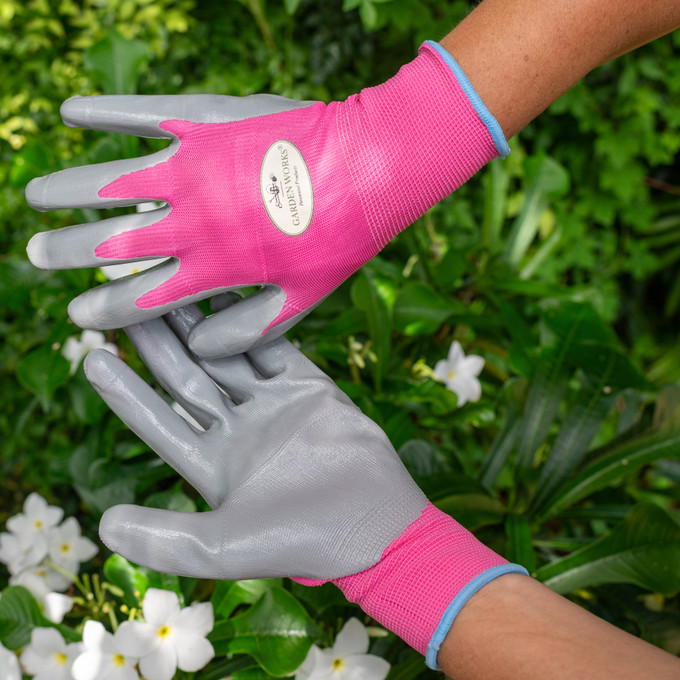
Why Gardening Gloves Are Essential: Protecting Yourself from Hidden Toxins Like Toxoplasmosis
Posted by Sunshine Chapman on Oct 10th 2025
For many of us, gardening is a source of peace, joy, and connection with nature. But while tending to the soil brings countless benefits, it can also expose gardeners to hidden risks that are easy to overlook. One such concern is toxoplasmosis — a parasitic infection that can be transmitted through contaminated soil. Fortunately, one of the simplest ways to protect yourself is also one of the most practical: wearing high-quality gardening gloves.
What Is Toxoplasmosis?
Toxoplasmosis is caused by Toxoplasma gondii, a microscopic parasite commonly found in soil that has been contaminated with cat feces. Outdoor cats, especially those who hunt, are natural hosts for the parasite. When they use the garden as their litter box, the eggs of the parasite can linger in the soil for months.
While most healthy adults who come into contact with T. gondii may experience mild or no symptoms, the infection can be serious for people with weakened immune systems and particularly risky for pregnant women, as it can harm the developing baby.
How Gardeners Are Exposed
Gardening naturally involves a lot of hand-to-soil contact — digging, planting, weeding, and harvesting. Even small cuts, hangnails, or scrapes can provide an entry point for bacteria or parasites present in the soil. Exposure can also occur when gardeners touch their mouth, face, or food without washing their hands thoroughly after working outdoors.
Why Wearing Gloves Matters
A sturdy, well-fitting pair of gardening gloves provides a simple yet highly effective barrier between your skin and potentially contaminated soil. Here’s how gloves keep you safer:
? Barrier Protection: Gloves shield small cuts and abrasions from direct contact with soil and water that may harbor bacteria, fungi, or parasites.
? Cleaner, Healthier Hands: They reduce the risk of accidentally transferring soil from your hands to your mouth or face while working or eating.
? Additional Safety: Many gloves, like our Garden Works Leather and Nitrile Gloves, also protect against thorns, sharp tools, and irritants that can cause dermatitis or infection.
? Easier Hygiene: After a long day in the garden, gloves are far easier to clean than scrubbing dirt out from under your fingernails — simply rinse or wash them according to care instructions.
Best Practices for Safe Gardening
Wearing gloves is the first step, but pairing them with smart gardening habits will keep you even safer:
-
Always wash your hands thoroughly after gardening, even if you wore gloves.
-
Avoid touching your face, eyes, or mouth while working with soil.
-
Wear gloves when handling raw compost or manure.
-
Wash harvested vegetables and fruits well before eating.
-
If you’re pregnant or immunocompromised, consider having someone else handle soil or litter tasks.
The Bottom Line
Gardening should be a joyful, healthy activity — and a little protection goes a long way in keeping it that way. By wearing quality gardening gloves every time you dig in, you’re not only preventing blisters and scratches but also protecting yourself from unseen hazards like toxoplasmosis and other soil-borne pathogens.
So next time you head to the garden, slip on your favorite pair of Garden Works gloves — because safety, comfort, and care for your hands are always in season. ?